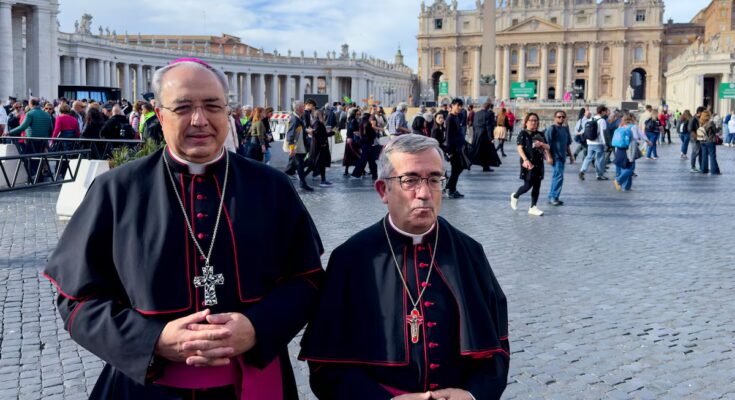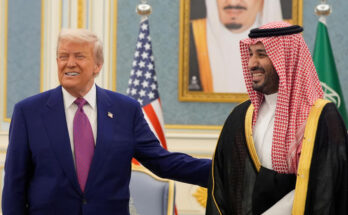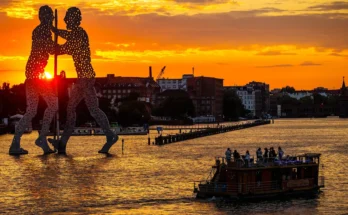EL PAÍS launched an investigation into pedophilia in the Spanish Church in 2018 and did a database updated with all known cases. If you know of any cases that have not seen the light of day, you can write to us at: Abusos@elpais.es If it is Latin America, the address is: abusesamerica@elpais.es
───────────
The plenary assembly that the Spanish Episcopal Conference (EEC) will hold in Madrid starting from Tuesday and until Friday will be marked by the abuse scandal against Rafael Zornoza, the first Spanish bishop investigated for pedophilia. Zornoza, who remains in office, could also participate in the plenary session as bishop of Cadiz and Ceuta, since the assembly is the supreme and collegial body of the organization, which meets twice a year (the previous one was held at the end of March and beginning of April). On this occasion, he does so a week after EL PAÍS revealed that the Vatican had opened an investigation against Zornoza, now 76 years old, for alleged sexual assault on a minor in the 1990s, when he was a priest in Getafe and directed the diocese’s seminary.
The plenary session, which will begin this Tuesday morning at ten with the inaugural speech of its president, Luis Argüello, will also take place 24 hours after the meeting that the leaders of the Spanish Church had on Monday in Rome with Pope Leo XIV. In the hour-long conversation with the pontiff, the case of Zornoza, canonically investigated for accusations of pedophilia, was discussed. His resignation, in Argüello’s words after leaving the Rome meeting, “could be accepted soon.” “They told us that it can be accepted. That it will be accepted and telling us the day and time, no, that it can be accepted, yes”, reported the president of the bishops.
This latest case of abuse within the Church is even more serious, if that’s possible, because it involves a bishop. And because, moreover, it highlights the cover-up, one of the key points for understanding the scandal of sexual abuse of minors within the Catholic Church. Pope Francis reformed canonical norms in 2019 to toughen penalties for the protection of pedophiles and the silencing of victims. But the Spanish Church looks the other way. Questioned on numerous occasions on this issue, the EEC leaders always refer to the fact that there is no open investigation and refuse to answer why the dozen bishops and cardinals still alive are not being investigated on charges of having covered up sexual abuse.
As proof of the rarefied atmosphere that the case of the bishop of Cadiz and Ceuta has generated in recent days, there has been a clear short circuit between the Vatican and the Spanish bishops, who, eager to address the crisis, leaked to numerous media last Thursday that Zornoza’s departure had been decided and would come into force on Friday the 14th. Four days later Zornoza is still in his post. The victim’s complaint was presented to the Dicastery for the Doctrine of the Faith four months ago. Argüello was questioned in Rome about the slowness in deciding whether or not to remove Zornoza and in resolving the case. He responded like this: “Trials in general are almost always slow, because they are guarantees, we believe in the rule of law.” Furthermore, he added, the canonical process itself, in the hands of the Tribunal of the Rota of the nunciature (the Vatican embassy), has “only been open for 15 days”. And he remarked: “It is under investigation.”
Returning from the Italian capital, Argüello will hold his inaugural speech this Tuesday, wondering whether he will mention the pedophilia case for which Zornoza is under investigation and for which the bishop of Cadiz himself decided last Monday, the day on which this newspaper published the news of the investigation, to suspend his agenda “to clarify the facts”. At the same time, he denied having abused minors in Getafe when he was rector of the seminary.
That same Monday, on a visit to Gran Canaria, Argüello admitted the “plausibility” of the complaint against Zornoza while showing his empathy with the accused. “The Church opens proceedings because it wants to know the truth and thus wants to get closer to the pain of every person, the pain of a possible victim and the pain of a bishop, who could have been unjustly accused”. José Cobo, vice president of the EEC and cardinal of Madrid, instead stated that the investigation against Zornoza is “a drama” for the Church and he also has confidence that the Vatican will resolve the canonical procedure “quickly”.
All bishops in the plenary have a voice and a vote. Something which, according to the victims’ associations, takes away credibility from this type of meeting and their investigations because, precisely, the people who have committed abuse and are investigated by them or those who cover up the abuse exercise their vote. This newspaper revealed, in particular, three hidden stories of abuse, cover-ups and opacity in the diocese of Getafe during the Zornoza era, in which the three heads of the episcopate are questioned for having transferred the accused and ignored the victims. This is the case, also revealed by this newspaper, of the bishop of Jaca and Huesca, Pedro Aguado, accused of having hidden a pedophile piarist in Mexico for nine years. A couple of weeks ago, the victim filed a complaint with the prosecutor’s office in his country against Aguado for concealment. The bishop’s lawyers, according to the victim, would have contacted him to “reach an agreement”.
In the plenary session which will end this Friday, the Spanish bishops will finalize for approval the so-called pastoral lines of the EEC for the four-year period 2026-2030. Furthermore, the annual report of the Advisory Commission of the Comprehensive Reparation Plan for Children and Equal Rights Victims of Sexual Abuse (PRIVA), published in September, will be published. It will also be presented the FOESSA Foundation report on exclusion and social development in Spain. According to what was published by this newspaper at the beginning of September, the bishops’ plan to compensate for the pedophilia scandal failed: only 2% of the victims were compensated. Those affected regret the disparity in scale, the bureaucracy and the wall of silence they face. Several victims’ associations met last Tuesday with the Minister of Justice, Félix Bolaños, to communicate to him the urgency of keeping the promise made by the government in 2023 to compensate those affected. Last year he approved a plan to compensate the victims with a fund in which the Church would also collaborate, but the Church refuses. He has always maintained that abuse is not something exclusive to religion, but rather occurs in all spheres.
On Wednesday 19th there will be a meeting with the media (the topic will be announced on Tuesday); On Thursday 20th the ecumenical celebration will be held in the Almudena cathedral and on Friday 21st, after the conclusion of the plenary session, a press conference will be held.



